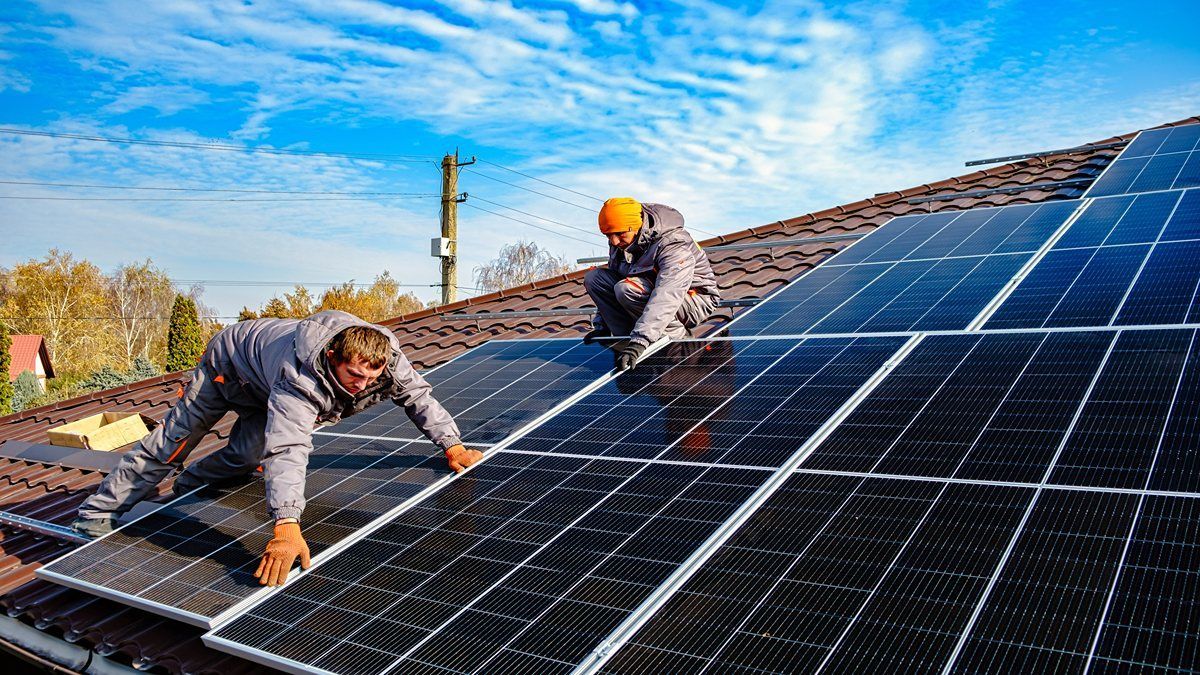Welcome to our comprehensive guide on home solar panels, a crucial read for anyone considering a shift towards sustainable energy. With the growing emphasis on reducing carbon footprints and enhancing energy independence, solar technology has become an increasingly popular choice for homeowners around the world.
Here, we will delve into what solar panels are, the benefits they offer, and the essential considerations before making this significant investment. Our aim is to equip you with the foundational knowledge needed to make well-informed decisions regarding solar power for your home.
Understanding Solar Panel Basics
Solar panels operate by converting sunlight into electricity using photovoltaic cells. This process provides a clean, environmentally friendly source of energy. Recent advancements have made these devices more efficient and affordable than ever. It’s important to understand the components of a solar system—solar cells, an inverter, a battery (for storage), and sometimes a solar tracker to increase the effectiveness. Another crucial factor is the lifespan of panels, typically around 25-30 years, during which they can significantly reduce your electricity bills.
For more detailed insights on how solar panels can power your entire home, visit https://www.omnihomeideas.com/hvac/can-you-power-your-whole-home-with-solar-panels/.

Costs and Financing Options
The initial cost of solar panel installation can vary widely depending on the size of your system and location. While the upfront expenditure might be substantial, federal and state incentives are available that can significantly lower the overall cost. Various financing options such as loans, leases, and power purchase agreements (PPAs) can also make solar energy accessible without a high initial investment. It’s crucial to calculate potential savings from reduced utility bills against these costs to understand your break-even point.
In addition to direct expenses, consider the potential increase in your property value. Studies indicate that homes with solar installations tend to sell at higher prices than those without.
Choosing the Right Solar Panels
Different types of solar panels are suited to varying needs and environments. Monocrystalline panels are highly efficient but tend to be more expensive. Polycrystalline panels offer less efficiency but come at a lower price point. Thin-film technology is versatile and lightweight but generally less efficient over long periods. The right choice depends on your roof space, geographic location, budget, and energy needs.
It’s advisable also to consider warranties offered by manufacturers as an indicator of both panel durability and company reliability. Researching panel certifications by trusted organizations can ensure safety and performance standards are met.
Installation and Maintenance
Professional installation is vital; incorrectly installed panels can cause roof damage or fire hazards and might not operate efficiently. Hiring qualified professionals who provide engineering site visits can save future maintenance costs and boost efficiency. Once installed, solar panels require minimal maintenance—mostly cleaning and periodic checks to ensure there are no obstructed cells.
Many companies that install solar panels offer maintenance services that can include monitoring of the systems through apps or other digital platforms, giving homeowners real-time information about their system’s output and health.
Legal Considerations
Before installing solar panels, it’s essential to navigate zoning laws, building codes, permits required by your local government or homeowners’ association rules that could impact solar installation projects. Some areas provide easier processes than others due to support for renewable energy initiatives.
Furthermore, net metering policies allow you to sell excess power back to the grid in many regions, providing financial benefits beyond mere reduction in utility bills. Understanding these regulations will enable smoother project flow and optimization of financial returns from going solar.
In conclusion, transitioning to solar power for your home involves careful consideration of multiple factors including cost, type of panels, installation intricacies, legalities, and ongoing maintenance commitments. However, with proper planning and understanding of the dynamics involved in setting up home solar systems, you can enjoy considerable economic benefits while contributing positively to environmental conservation.
Remember that taking full advantage of renewable energy opportunities often entails absorbing complex information and making strategic decisions. But with modern advancements in technology and supportive polices widely in place, adopting solar energy has never been easier—or smarter!
